A desire to make a lasting difference to the lives of women worldwide has led a Townsville professor to help a Nobel Peace Prize Laureate run for the presidency of the Democratic Republic of Congo.
Professor Ajay Rane is an urogynaecology specialist based in Townsville who has a long history of helping women in need, and is committed to eradicating women’s health issues in the developing world.
Over the past 20 years, he has volunteered his time overseas in India, Nepal, Papua New Guinea, Bangladesh and Africa to provide surgery to women suffering injuries from childbirth.
In 2018, the professor helped establish the charity Flourishing Women to prevent and treat birth trauma, prolapse, incontinence and genitourinary fistulae in woman in developing countries.
Early in Professor Rane’s volunteering journey he encountered and began helping Congolese doctor and Nobel Peace Laureate Denis Mukwege, who has helped and treated tens of thousands of women who suffered from wartime sexual violence at his Panzi Hospital in the east of the African country.
The area has been wracked with violence for decades as different militia groups battled for control of rich resources, including the valuable mineral ore columbite-tantalite (coltan), and used sexual violence as a weapon to force communities off their resource-rich land.
The sixty-eight-year-old is known as ‘Dr Miracle’ for treating survivors of sexual violence, has survived several assassination attempts for speaking out against the crime, has been awarded the UN Human Rights Prize and in 2018, won the Nobel Peace Prize for his humanitarian work.
He is also the patron of Flourishing Women.
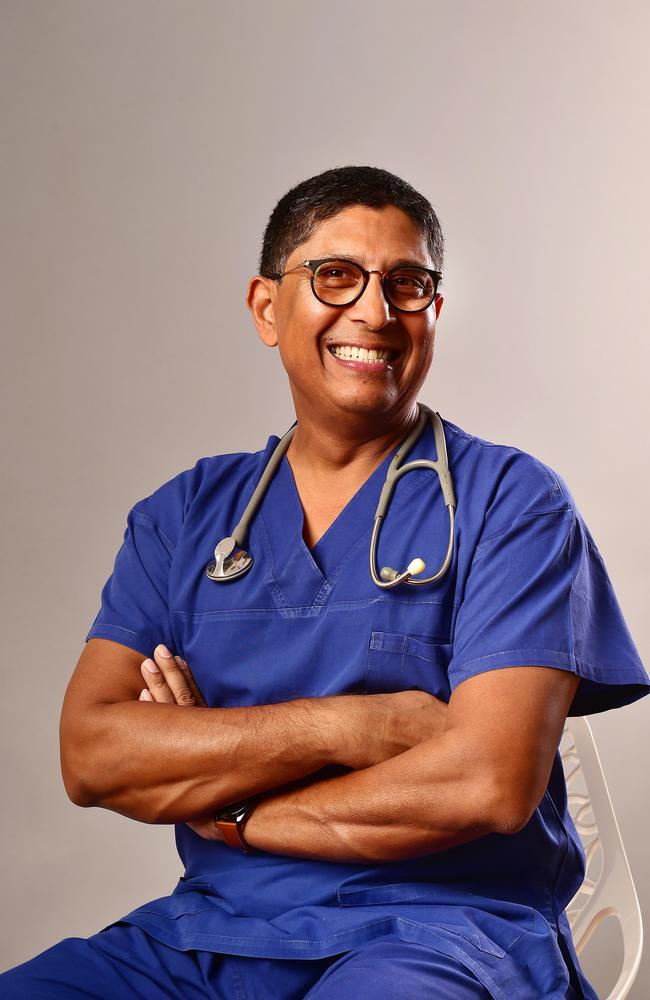
Despite the threat of further assassination attempts, the Nobel Peace Prize Laurette contested the presidential election held in December in a continuing effort to bring peace and stability to his country and to highlight the issue of wartime sexual violence.
But last week, the Congolese Constitutional Court confirmed President Felix Tshisekedi’s landslide victory in the election for a second term, despite a large number of candidates, including Dr Mekwege, disputing the results.
Professor Rane said that although his close friend did not win the presidential election he had achieved a moral victory by bringing the issue of wartime sexual violence in the country to the national and international stage.
“Denis and his team, which includes myself, have been looking after more than 98,000 victims of rape and gender-based violence since 2006,” Professor Rane said.
“He has tried very hard to bring about change globally. The problem has been that the world sees these things in a very
different way.
“It is for this reason that despite having survived six assassination attempts, he decided to put his name forward for the presidency of the Democratic Republic of Congo, only because he believes that unless we as doctors put our hand up, to try and save these victims both medically and politically, we will not see sustainable change.”
Professor Rane said Dr Mukwege presidential campaign was a “massive statement” for the world: “we cannot sit on our thumbs waiting for things to happen”.
“We have to be proactive and put our hand up if we truly believe that we are going to make a difference in the long run,” he said.
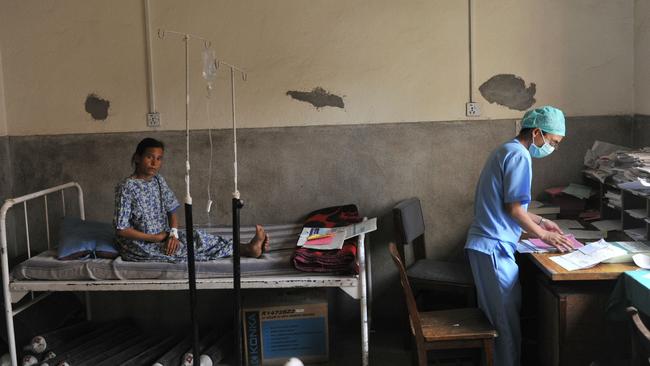
Professor Rane said his friend had visited all the major cities in the Democratic Republic of Congo during his campaign, despite the personal risks.
“Thousands of people have come to support him despite the risk of being attacked by miscreants or the rebel groups,” he said.
“It shows that women are sick and tired of being victimised in that country and so I think the impact statement has already been made. So in essence, I think the women have won. We just hope that this momentum continues.”
In the lead-up to the election, Professor Rane helped rally doctors from around the globe to raise campaign funds and bring the issue of wartime sexual violence to the forefront.
“When I met him in Paris 10 weeks ago, it was very interesting,” he said.
“He’s a very innocent, amazing human being, who probably did not understand what politics meant. So, from our point of view, we decided to recruit all our young doctors from America, from Australia, who have worked with us, encouraging them to go online and spread the word through social media.
“We were also been tasked with fundraising and to that effect, we have had a lot of success, negotiating especially with his massive supporters in France, Belgium and the European Union, and we have managed to raise funds to the tune of 78,000 euro ($1.65m) in the last six weeks for his campaign.
“Now this may or may not be a large sum, but it shows the generosity of people who believe in his cause and we are very, very grateful to all the donors.”
Professor Rane said there had been a shift in recent years among doctors who were choosing to provide more than medical help to victims of sexual violence, including Dr Mukwege who established the Panzi Foundation and the Dr Mukwege Foundation to also provide financial support and to seek justice for patients.
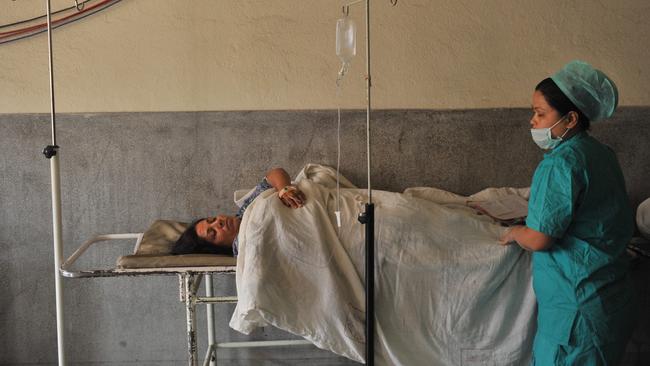
“We have changed dramatically over the last 10 years where we were initially just surgeons, operating on women and trying to make them better,” he said.
“But now, over the last 10 years, we’ve been running the four-pillar program, which means that we do the surgical bit. Then we do the mental health bit, then we try and get the perpetrators caught and brought to justice …
“And the fourth pillar is from the International Monetary Fund to give these victims some kind of monetary compensation.
“So we have the medical, the mental the judicial and the financial pillars, the four pillars of trying to help these hundreds of thousands of women around the world who are victims of gender-based violence.”
Thanks to judicial pressure and more public scrutiny being placed on the militia groups in the Congo by charities, Professor Rane said there had been good news at last.
“The good news is that we have definite evidence now that there has been a significant reduction in the rate of sexual violence (in Congo), especially the rape that was based along the war area bordering Rwanda,” he said.
“That fight was because of coltan, the mineral ore that’s used in every mobile phone.
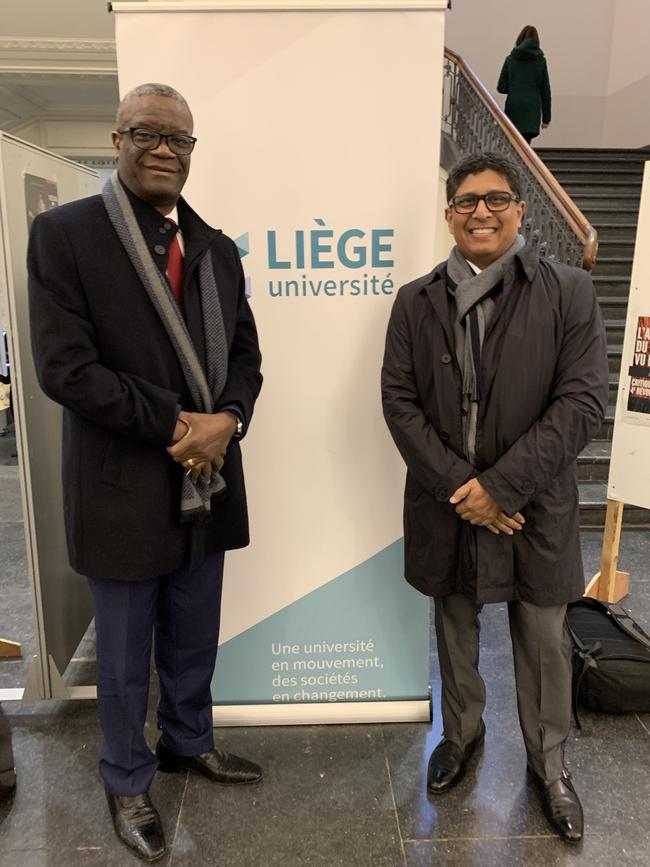
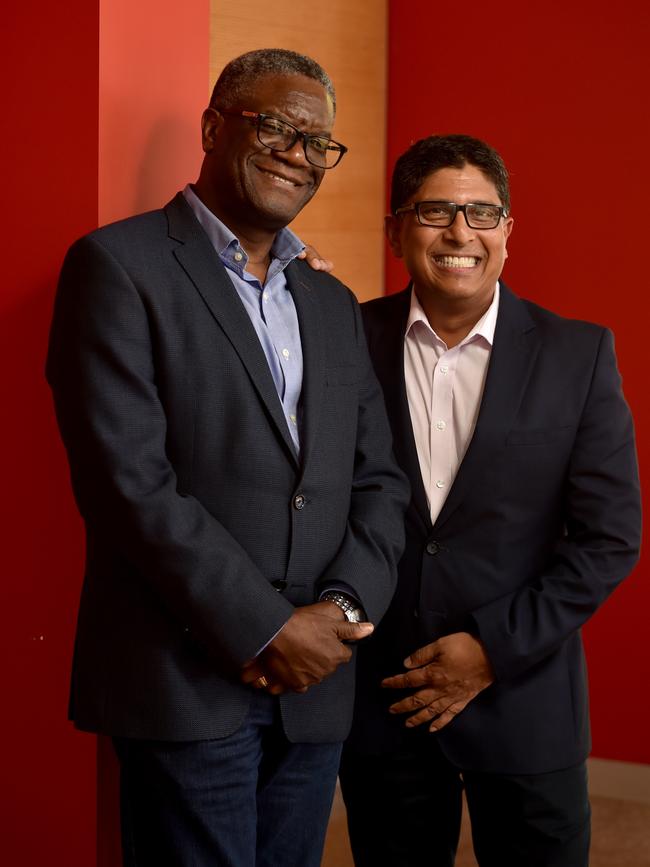
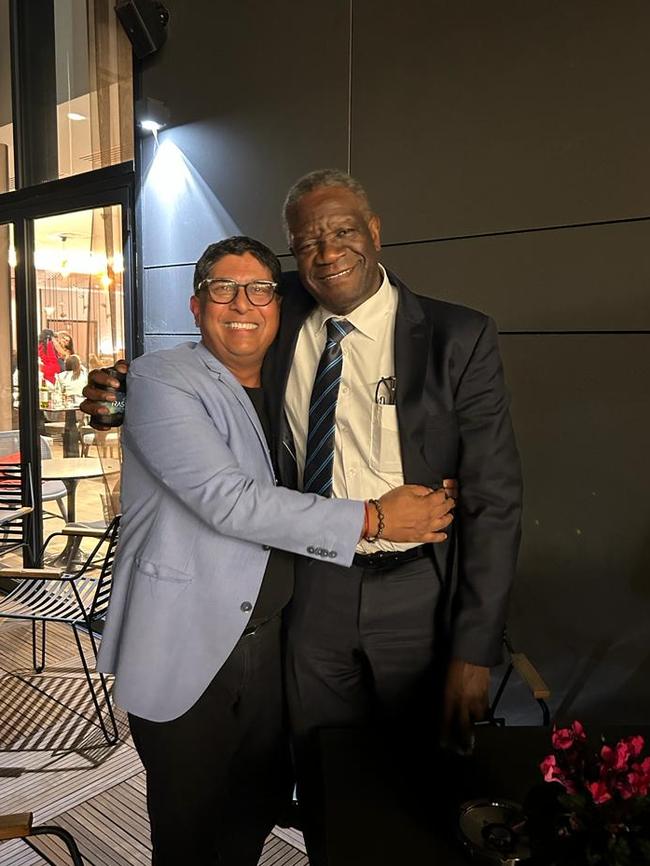
“Dr Mukwege getting the Nobel Peace Prize has also highlighted the plight of these women (internationally) so the rebels have become very wary that they’re being called up.
“Essentially, we are looking at a 60 per cent reduction (in sexual violence in Congo) in the last five years. It’s a fantastic result for the women.”
He said wartime sexual violence was a worldwide issue, and by repeatedly telling the story, Dr Mukwege and his supporters were also reducing its incidence globally.
“The issue is complicated. But we have realised that the best way to bring these numbers down is to tell our story,” Professor Rane said.
“We tell our story in the United Nations. We have provided data to the International Court of Human Justice in The Hague and we believe that there has been a reduction to a tune of 40 per cent globally as well.
“So 60 per cent in Congo, 40 per cent globally. This is indeed very good news.
“The same is also true for female genital mutilation. Through sheer education and continuous increasing awareness of the situation, the global reports are now that FGM is down by 67 per cent. That’s worldwide.
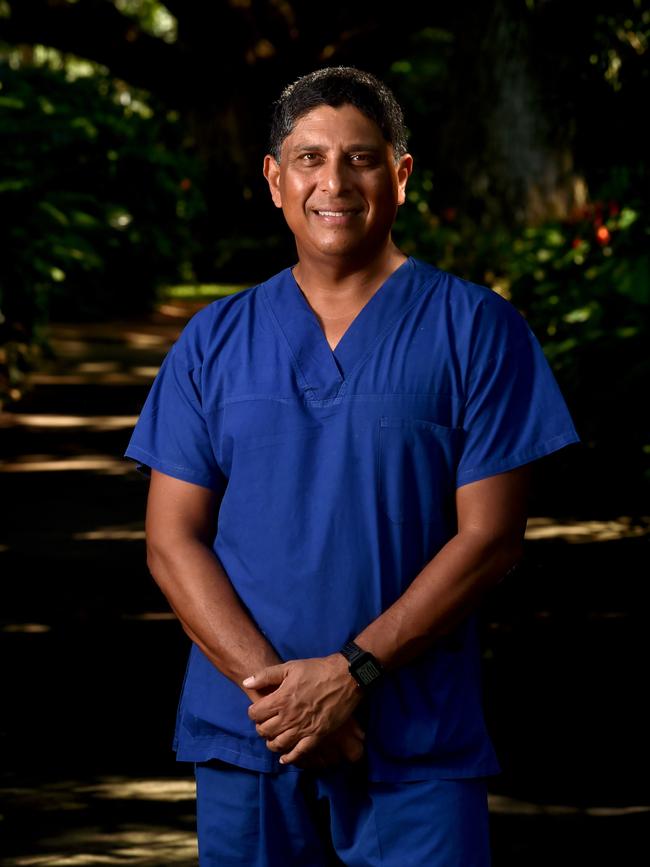
“So honestly, 25 years of working in this area, we are finally seeing the good news results …
“We believe that the charity (Flourishing Women), the pro bono work, the hard work of all the people on the ground is paying big dividends.
“What we want to really also emphasise to the younger generation is to understand that we are extremely fortunate in Australia and the United States.
“We need to step out of a bubble a little bit more, because people like Denis have shown the world that yes, your life might be at risk, but it’s worth taking that risk and that’s why we do what we do.
“I salute this brave man and we’re very proud that he’s the patron of our charity and it makes us work harder and harder to do good, if possible, all over the world.”

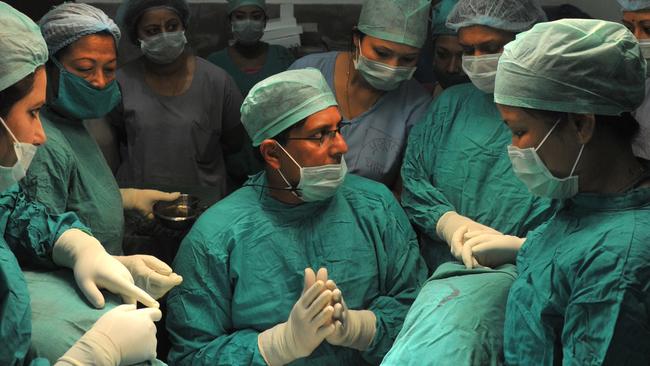
Add your comment to this story
To join the conversation, please log in. Don't have an account? Register
Join the conversation, you are commenting as Logout
Push for entire Townsville region to receive disaster cash
With more monsoonal rain on the way, Herbert MP Phillip Thompson has asked for the entire Townsville region to be eligible for disaster assistance as flash flooding continues to wreak havoc on homes.
Tensions reach boiling point at prison after 9yo’s death
Staff have been warned over increased tensions with prisoners at Townsville Correctional Centre following the alleged murder of a 9yo boy. Here’s why.